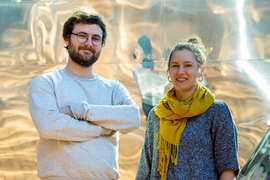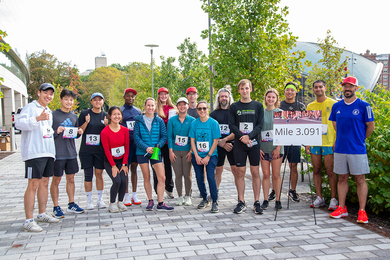“Learning about ethics isn’t like a vaccine — where you take one or two philosophy classes and you’re set for life — but more like eating your vegetables every day to stay healthy,” says Kate Trimble, senior associate dean and director of the Office of Experiential Learning. “It’s a muscle that you develop over time, with repeated exposure, in different contexts, and by talking to people who have different perspectives and experiences than you do.”
Now, MIT undergraduates have a new way to build those muscles: a three-credit course being piloted this summer, 24.133 (Experiential Ethics). The course is the result of a partnership between the Office of Experiential Education and the philosophy section of the Department of Linguistics and Philosophy.
The Experiential Ethics course is the latest addition to recent efforts to incorporate ethics into technology education, such as the New Engineering Education Transformation (NEET) initative and the Gordon-MIT Engineering Leadership Program (GEL). “We envision this as a complement to existing philosophy courses and programs like GEL and NEET, as well as the new curricular approaches to ethics and social responsibility being planned in the college of computing,” Trimble says.
The 10-week course, which begins next month, was originally designed for students taking part in experiential learning programs this summer, like the Undergraduate Research Opportunities Program, industry and social impact internships, and MISTI. That changed in the wake of Covid-19, as some students’ summer plans were put on hold.
Now Experiential Ethics is open to any student, regardless of their summer plans, says philosophy graduate student Marion Boulicault, one of the course’s designers and instructors. Students can draw on past or present research, internships, public service projects, or volunteer work. “It could even be working through their own experiences of Covid through an ethics lens. We want to make the class as applicable, helpful, and meaningful for the students as possible,” says Boulicault.
Incorporating students’ experiences is a central pedagogical tenet, according to philosophy postdoc Milo Phillips-Brown, who is also designing and teaching the course. “We think the foundation for teaching ethics at MIT is for students to have a sense of proximity to social and ethical issues. What is not going to work is for students to feel like ‘ethics is being pushed on me.’ The idea of having this class be so student-driven is that this allows them to come to ethics on their own terms; they follow what’s important to them and develop an inner motivation to be involved.”
In addition to considering the ethical dimensions of their experiences, students will have a framework to home in on their personal values and professional goals. Small-group discussions will be facilitated by graduate students, supplemented by readings, simulations, and written reflections. Final presentations will take place during an “Ethics Fest” in September.
“We hope that the course will not only offer an engaging and applied introduction to ethics, but that it will also spur conversations that are thought-provoking and community-building — a great way for students to meet new people and stay connected to MIT over the summer,” says Trimble.
Undergraduates interested in taking the inaugural course can apply on the Experiential Ethics website by May 11.









